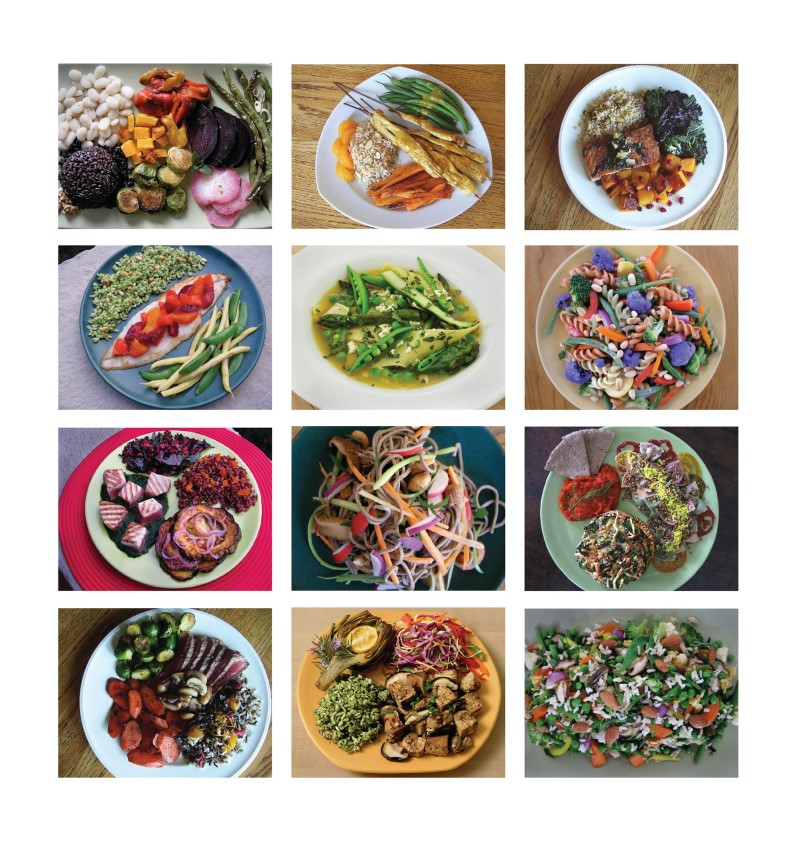How to change your diet to help save the planet

We have officially made it to the year which was predicted to have self-drive cars, robot carers and flying houses! Whilst some of these once futuristic advances are just round the corner many of us are becoming more concerned about the effect on our dear planet.
The growing human population is putting a strain on food supply: what would we do if the world ran out of food? With increasing exposure to the issue of sustainability in association with our dietary and general health (thanks in part to Netflix documentaries and increasing coverage on social media), this question is an increasing concern.
In some parts of the world the demand for meat is increasing with population growth. This growth is likely to increase the effect of global warming. On top of this, meat consumption is associated with an increased risk of a wide range of diseases. This is a lose-lose situation.
We now have scientific data to suggest that there is a correlation between our consumption of food with human health and environmental sustainability. Attention to global food production is needed to reduce the threat of climate change, destruction of wildlife and biodiversity and the pollution of rivers and oceans. Arguably, food production is major driver of environmental.
EAT-Lancet Commission report 2019
The EAT-Lancet Commission is a group of 37 leading scientists from 16 countries. After two years of work, this report provides the world’s first scientific targets for healthy eating from a sustainable perspective. The project sheds light on the issue from a number of viewpoints as well as proposing a variety of ways to tackle this, including promoting a planetary based diet, reducing food waste by half and addressing global warming by improving industrial agricultural methods that can be so devastating to the environment. This is a very large topic and the remainder of this blog focuses on the highlights of recommendations for sustainable food production and consumption.
The two major concerns regarding global food production are the firstly the issue poor-quality dietary intake and secondly the over-consumption of food, particularly in developed countries. The EAT-Lancet Commission report indicates that an unhealthy diet carries a greater risk of disease and death than unsafe sex, alcohol, drug and tobacco use combined. Thus the impact our diet has on us and the planet is immense.
The Commission report highlights the benefits of a Planetary Health Diet.
What is happening?
Problem 1 – Eating too much food

In the world today, there are countries which are overeating and essentially eating the world away. The impact of overconsumption of food on the global population has created a disturbance in the global food production equilibrium. With some regions in the world having an excess of food and others having little to nothing.
For instance, people in North America eat more than six times the amount of red meat recommended in the planetary health diet. On the contrary, those living in South Asia eat only half the amount recommended. Additionally, all countries appear to be consuming more starchy vegetables than recommended. This includes South Asia eating more than 1.5 times the amount recommended and sub-Saharan Africa eating more than 7.5 times the amount recommended.
Problem 2 – Eating the wrong sorts of food
The planetary health diet

(Above image reproduced from EAT – ‘Food Planet Health’ report)
In recognition that many of us are eating the wrong type of food the Commission Report promotes the use of a ‘Planetary Health Diet’. This healthy diet resembles the Mediterranean Diet and Okinawa diets. The latter is the diet consumed by Japanese living on the island of Okinawa, where the average lifespan is one of longest in the world at nearly 84 years.
The planetary health diet was created by the EAT-Lancet Commission report which set out specific targets to tackle this global issue. It calls for red meat and sugar consumption to be cut by half while vegetables, fruit, pulses and nuts to be doubled.
This plant-based diet allows an average of 2500 calories a day which would come from predominantly plant based foods. There is room for meat/eggs/fish but limited to one red meat serving, and two servings of fish a week, a glass of milk a day, or some cheese/butter. The idea is to get more protein from plant-based sources such as pulses/nuts.
Walter Willett, an author of the report, says ‘’we are not talking about a deprivation diet here: we are talking about a way of eating that can be healthy, flavourful and enjoyable’’.
A ‘’Win-Win’’ situation

The report highlights how plant-based diets are a ‘’win-win’’ in that they are advantageous for both people and the planet. This double benefit is particularly relevant to the consumption of red meat. The report says that the increasing consumption of beef, lamb and pork is associated with increased risk of cardiovascular disease and cancer. It also adds to climate-changing greenhouse gases from the carbon dioxide and methane of livestock.
Where do I start?
An intention to improve your diet is a great place to start. Seeing that you’ve got this far to reading about it indicates that you have an interest!
It’s no doubt that making a dietary change can be difficult. But making small changes now can add to making a greater impact to the planet and your health. Remember that change can be gradual and that it takes time to get used to any alteration in lifestyle – but the benefits will be worth the effort!
In summary, we should aim for the following:
- Proteins should primarily be from plant sources and fish with optional modest consumption of poultry and eggs alongside low intakes of red meat if any, especially processed meat (ham, salami etc).
- At least 5 servings of fruits and vegetables (500 grams) should be consumed each day. Ideally 200 (100-300) grams of fruits and 300 (200-600) grams of vegetables per day.
- At least 50 (0-75) grams of nuts and 75 (0-100) grams of legumes per day including dry/tinned beans, lentils, peas, chickpeas etc.
- Aim to have no more than 98 grams of red meat (pork, beef or lamb), 200 grams of poultry and 196 grams of fish per week.
- Fats should mostly come from unsaturated plant sources (olive oil, rapeseed oil, sunflower oils etc), with low intakes of saturated fats and avoiding partly hydrogenated fats (some margarines) with no more than 12 grams of saturated oils per day (butter, lard).
- Carbohydrates should primarily be sourced from wholegrain foods with low intakes of refined processed grains and less than 5% of energy from sugar.
- In terms of wholegrains, approximately 232 grams/day including rice, wheat and corn and 50 (0 -100 grams) of starchy vegetables per day including potatoes, sweet potatoes squash and cassava.
- Moderate levels of dairy consumption are optional – 250 (0 – 500) grams/day.
This is why we’ve set out a mini starter plan below which provides baby steps into a big change.
| Table 1
Ancient Grains |
| Barley |
| Quinoa |
| Spelt |
| Buckwheat |
| Amaranth |
| Millet |
| Sorghum |
- Increase your intake of ancient grains. We are big consumers of grains such as rice, corn and wheat. However, these grains are a planetary threat as they are grown very intensively and are highly dependent on fertilisers and herbicides (the bad stuff which damage our soil). So, opting for other grains which aren’t dependent on the bad stuff is a good way to start saving the planet! Check Table.1 for some of the different ancient grains you can go for. Choosing products made from these is also a good start.
- Opt for organic when possible. When you select an organic product, it means that the product has been produced in an organic way, meaning less fertiliser and other ‘bad stuff’. However, it’s no secret that organic produce is expensive and also it has to be acknowledged that organic farms often use pesticides albeit in less quantity. So why not just begin with the products which are grown with high levels of pesticides, as listed in Table 2, also known as the ‘dirty dozen’ as designated by the Environmental Working Group (EWG) Here’s a list of some in order of highest level of pesticide downwards (* 2019 data):
Table 2 – The Dirty Dozen
| 1. | Strawberries | 7. | Peaches |
| 2. | Spinach | 8. | Cherries |
| 3. | Kale | 9. | Pears |
| 4. | Nectarines | 10. | Tomatoes |
| 5. | Apples | 11. | Celery |
| 6. | Grapes | 12. | Potatoes |
On the plus side, the following fruit and vegetables contain the lowest levels of measured pesticides. These are sometimes referred to as ‘clean fifteen’ (Table 3).
Table 3 – The Clean Fifteen
| 1. | Avocado | 9. | Mango |
| 2. | Sweetcorn | 10. | Kiwi fruit |
| 3. | Pineapple | 11. | Cauliflower |
| 4. | Sweet pea | 12. | Cantaloupe melon |
| 5. | Onion | 13. | Broccoli |
| 6. | Papaya | 14. | Cabbage |
| 7. | Eggplant / Aubergine | 15 | Honeydew melon |
| 8. | Asparagus |
Irrespective of the pesticides, eating a variety of fruit and vegetables is highly preferable and all will provide you with generous amount of fibre, vitamins, minerals and phytochemicals.
- Consume less meat but also better meat when you do. Try and aim to set yourself a number of how many times you want to eat meat or poultry in a week (e.g. two or three times a week). This will help prompt you to choose other foods such as lentils or vegetable-based dishes. Also, choosing meat which has been fed natural pasture is better than those fed cheap grains. This helps the environment and also provides a better-quality meat when consumed.
There are some excellent recipe websites to help you eat a more planetary based diet including:
- The Eat-Lancet Commission: https://eatforum.org/learn-and-discover/?page=1&category=96&topic=
- Thedoctorskitchen: https://thedoctorskitchen.com/recipes?_sft_recipe-diets=vegetarian
- The Vegan Society: https://www.vegansociety.com/resources/recipes
This blog was written by Student Dietitian Sena Ali and edited by Sian Shepherd (Specialist Gastroenterology Dietitian) and Dr Andrew Millar (Consultant Gastroenterologist).
References:
Healthy Diets from Sustainable Food Systems. Summary of Report of the EAT-Lancet Commission
ScienceDaily. (2020). Diet and food production must radically change to save planet. [online] Available at: https://www.sciencedaily.com/releases/2019/01/190116185207.htm [Accessed 11 Dec. 2019].
Tags: climate change, Eat-Lancet Commission report, food production, food sustainability, healthy diet, Okinawa, planetary health diet, plant-based diets, sustainable food pathways
0 Comment
Leave a Reply